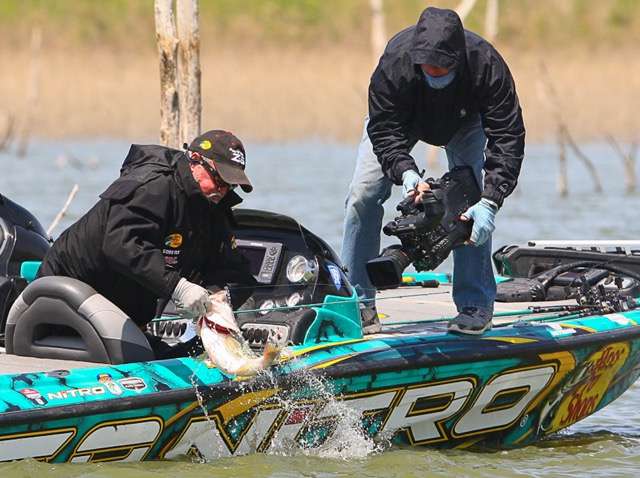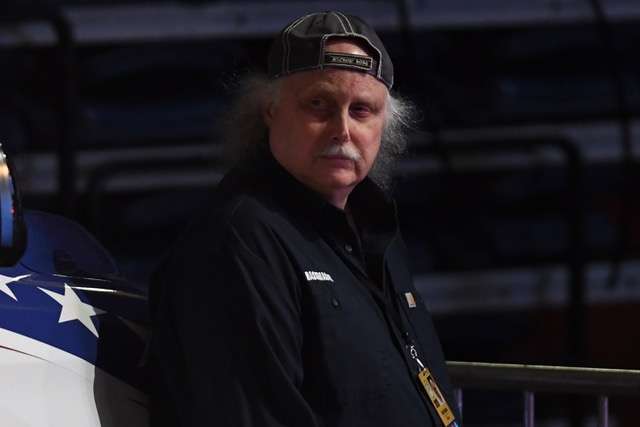
“Like the pine trees linin’ the winding road…”
Dateline: Film school on board
“The important thing is not the camera but the eye.”
~Alfred Eisenstaedt
“db, I’m left-eyed…”
And before I can write that down, Wes Miller, grabs my notepaper, turns it around on the table, flips the paper over to the clean side and draws two squares…

“…when I shot video with my right eye this is what I would see…”
Wes draws one square and puts a dot in it…
“…this one here that’s the viewfinder Right-Eyed…”
…he then draws another square and scribbles sort of a circle in it…”
“…but what would happen with right-eyed shooting is in my brain I would be seeing another whole frame, it would be in black and white sticking out over here but the real eye piece frame would be in color…”
…I take the paper back and flip it over to continue note taking (if you look close at the photo you can make out some of the writing on the other side of his Left-Eyed drawing)…
“…and it gave me a headache all the time so I started left-eye shooting and everything worked out a whole lot better.”
Worked out better, I know.
I’m a left eyed film shooter too.
Our left eye focuses on the shot while our right eye, not blocked by the camera housing, looks for the next shot.
The greatest storytelling videographers I ever worked with…
…all shot left-eyed.
And Wes Miller, is one of them.
Meet Wes.
“…I’ve got a name…”
This is the Wes Miller most of us see…

…this is the man behind the lens…

…and this is his office and how he works…


“I came to work for JM Associates (the people who shoot the Bassmaster TV show) in 1992 as a driver/grip.”
Wes lives in Cabot, Ark., married with three kids. Graduate of the University of Arkansas with a degree in film.
“Began in local TV editing some, shooting some, wanted to shoot more, knew since about eighth grade on I wanted to be in television, wanted to be a shooter.”
Now normally right about here I would go and ask some of the anglers or other video shooters on the Bassmaster show this question: “So how good is Wes?” and they all would say something like, “he is the best,” and I would smile and walk away.
And not for a moment believe them.
I don’t need their opinion, here’s why, for 30 years I have sat in edit rooms and judged the works of videographers from all over the world. I have looked at hundred’s of “audition tapes,” sent in by those folks, some of those tapes I watched for several minutes, some several seconds, I’m trained in film I know what to look for, know competence when I see it, know greatness when I see it.
Wes I thought was competent, good, great would come out when we sat down together, away from the event and interruptions.
One on one, I wanted to see if he really had the chops.
Big Market chops.
International chops.
And, what you might find weird, still photographer chops.
Storyteller chops.
This “shooters” biz, I know.
“…I’ve got a name…”
“One doesn’t stop seeing. One doesn’t stop framing. It doesn’t turn off and turn on. It’s on all the time.”
– Annie Leibovitz
“You know db as I was driving here it was really foggy, but when the fog broke you could see the clouds and the sun breaking through, it was beautiful.”
“Did you see it as moving pictures or a photograph?”
Wes sits up in his chair, his casual lean is gone, the dude is quick he knows exactly what, and WHY I’m asking that question. I like that.
“I look at the world in frames, one frame at a time been like that since I was a kid.”
Me too. I tell my wife all the time as we are driving around, “that would make a nice picture,” so it seems does Wes.
Let me tell you this, every story I WRITE I do one frame at a time, in my mind the story I’m writing is a film playing in my head.
One frame at a time is why you get sentences like this.
“I study Martin Scorsese, I watch his cutaways, you know he has one shot on the character and then just out of nowhere he takes a quick shot of like a glass or orange juice on a table, brilliant. Big fan and watch a bunch of filmmakers David Lynch and Quentin Tarantino.”
“Do you want to shoot like them?”
“No, I want to shoot like me, don’t care to follow their rules, or frankly anyone’s rules, I want to do it the way I see it, my way.”
And that my friends right there…Is Greatness.
“…like the singin’ bird…”
Most video shooters worth their chops will put themselves in precarious positions to get the shot, it’s almost a job pre-req…it takes about 30-45 SECONDS of an audition tape to see that, mainly the first 30-45 seconds.
At :46 seconds I would start scrolling though the rest of the reel, at a minute-thirty if I didn’t see what I was looking for I would hit…eject.
I didn’t tell Wes why eject, he told me.
“You’ve got to tell a story db, you tell it with a keyboard, I tell it with lens.”
“How do you do that?”
I know the answer, so does Wes.
“I never make one move with the camera without knowing where the next move will be, as I turn and zoom or focus the lens in my head I’m seeing the story play out so I know what other shots I have to get and where they are.”
If you are reading this and you are sitting in film school or journalism news shooter school take that above quote from Wes cut it out and frame it above your desk.
It’s too late to take the shot you need while you are back in the editing room.
Understand how good this Wes dude is, he’s not just shooting fishing HE’S SHOOTING A STORY ABOUT FISHING and that my friends is a huge difference.
If I knew about Wes while I was at ESPN, trust me, he would have been 10 years into shooting for Outside The Lines by now.
He’s got chops.
He’s legit great.
“…and the croakin’ toad…”
“It is more important to click with people than to click the shutter.”
~Alfred Stieglitz
When I first came here I didn’t much watch the anglers as I did the video and still photographers who covered the anglers.
It was my comfort blanket.
I knew they all were technically very good, but that’s really only half the game in filmmaking.
Within a few tournaments I knew how good they were with the people they turned their lens on.
When you stick a huge lens in someone’s face you are invading them, when I came out of film school I could make a film, it was on the streets, the farms, the valleys of Central California where I learned to be a story teller.
KFSN some 35 years ago the shooters there, under the eyes of my first News Director, Mike, the shooters: Bob, Gary, Breedlove, Chuck, Mac and Scotty taught me to respect those good folks we turned the camera on as much as I did the camera.
“I’m in their boat, been doing it for some 20 years now, I sort of know which way they are going to go, what they are going to do, each one is different, my main job is to get the shot, to tell the story, but it is also not to be in the angler’s way or affect the outcome of the catch, you just have to respectful of all of that.”
Technology has certainly changed this, and many other games, you can pretty much stick cameras on anything anymore, run them all from miles away.
And there is value in that.
In college I learned the difference in filming and filmmaking.
The camera, does the filming.
The dude holding it does the filmmaking.
And left-eyed shooters, are magic.
“…I’ve got a name.”
I Got A Name
Jim Croce
db
“If the photographer is interested in the people in front of his lens, and if he is compassionate, it’s already a lot. The instrument is not the camera but the photographer.” – Eve Arnold
Award Winning Photojournalist Magnum Photos
Lifetime Achievement Award from the American Society of Magazine Photographers

